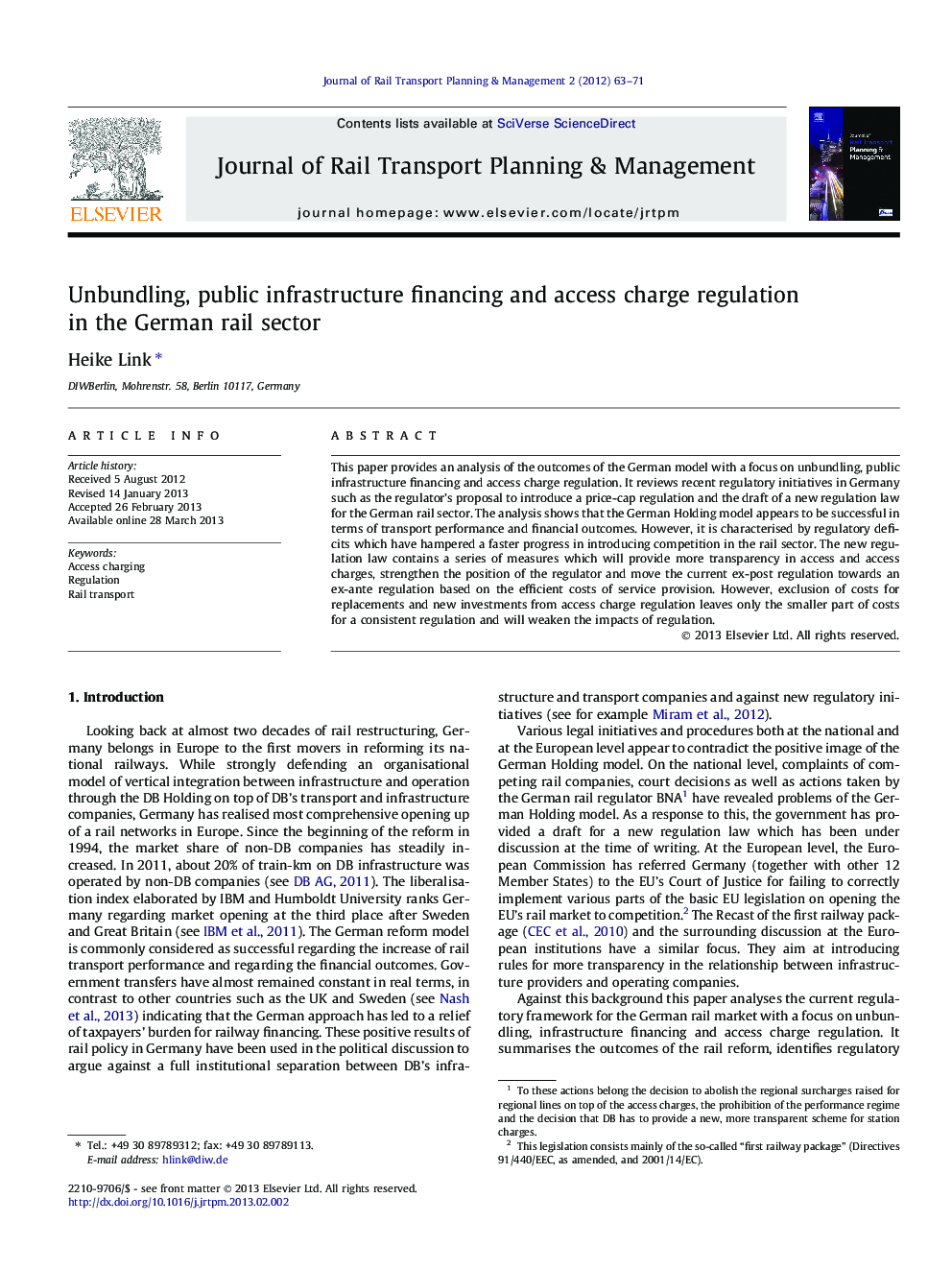| Article ID | Journal | Published Year | Pages | File Type |
|---|---|---|---|---|
| 286464 | Journal of Rail Transport Planning & Management | 2012 | 9 Pages |
•The paper discusses current regulatory framework for rail in Germany.•It focuses on unbundling, infrastructure financing and access charge regulation.•It summarises the outcomes of the rail reform regarding transport and financial performance.•It identifies regulatory deficits.•It analyses how the suggested new regulation law responds to these deficits.
This paper provides an analysis of the outcomes of the German model with a focus on unbundling, public infrastructure financing and access charge regulation. It reviews recent regulatory initiatives in Germany such as the regulator’s proposal to introduce a price-cap regulation and the draft of a new regulation law for the German rail sector. The analysis shows that the German Holding model appears to be successful in terms of transport performance and financial outcomes. However, it is characterised by regulatory deficits which have hampered a faster progress in introducing competition in the rail sector. The new regulation law contains a series of measures which will provide more transparency in access and access charges, strengthen the position of the regulator and move the current ex-post regulation towards an ex-ante regulation based on the efficient costs of service provision. However, exclusion of costs for replacements and new investments from access charge regulation leaves only the smaller part of costs for a consistent regulation and will weaken the impacts of regulation.
